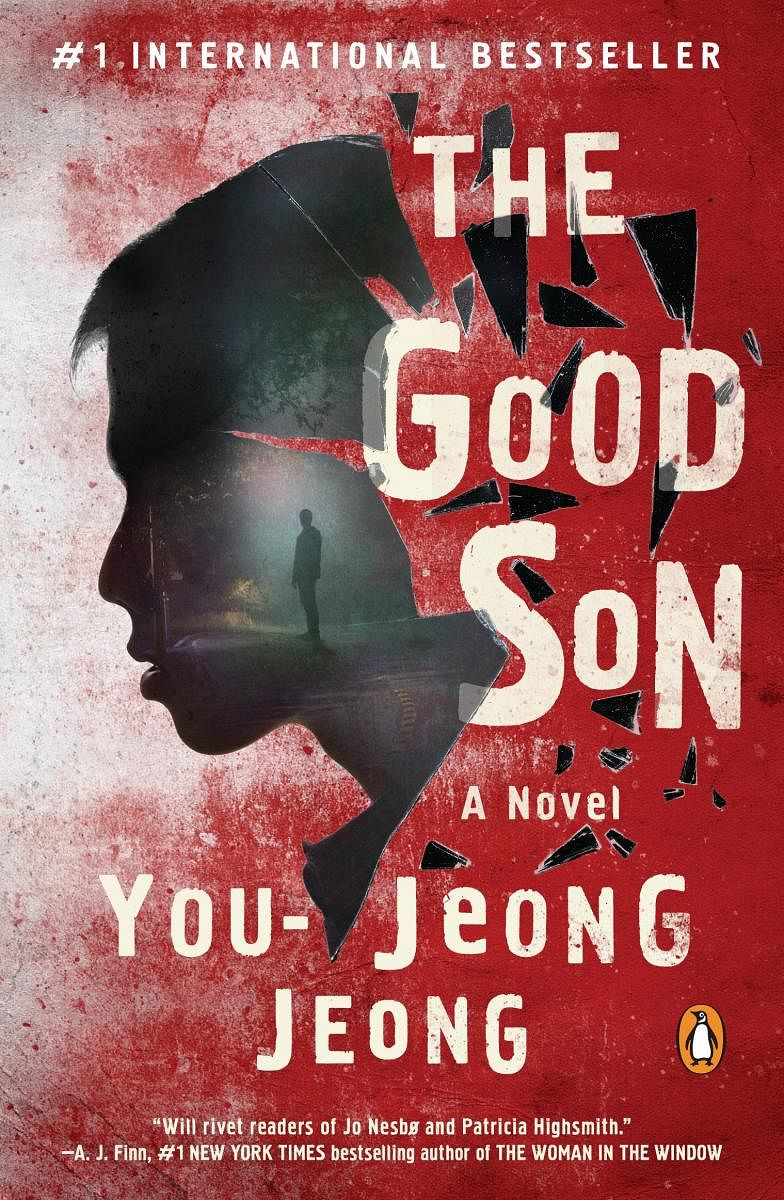
It takes a particular kind of mind to plumb the depths of the unimaginable. Imagine you aren’t quite well and being off your medication makes you... well, unpredictable. Imagine you wake up far too early one morning covered in blood and slowly piece together that your mother has been murdered downstairs. And imagine the slow discovery the murderer is you!
The issue with everyday gruesome is that it is so plausible, so real. From such a deviant yet simple scenario, a fascinating and terrifying story constructs. Written with a steady deft touch and a sparseness that underlines menace throughout, The Good Son by You-Jeong Jeong is a book I felt unease reading and yet could not put down.
The issue with crime fiction is that however well written, as a genre it exists on a plateau. The format and its denouement are almost always within fairly watertight expectations. And writers oblige with more creative content whereas they leave the format or the framework (read generic norms) almost undisturbed. In this book, the author ruthlessly marries crime to intense literary fiction. Of course, the norms are quite turned on their head. And how!
Within the first few pages, we are aware, without confirmation, that our young narrator/ hero Yu-jin is a murderer. He has the option of running away and beginning a new life anywhere in the world. Yet he chooses to stay back and excavate his own identity which seizures and medication have buried under clouds of forgetfulness and raging delusions. The sleuth who needs to piece together clues is also the murderer and the mystery is that he does not know fully who he is, what he does or why. From these bare data points emerge a psychological thriller that exhilarates while completely redefining many basics.
“I started sweating and grew dizzy. My feet squelched. Sticky, slippery clumps of blood oozed between my toes. Mother’s voice echoed endlessly in my head. ‘Yu-jin!’ Low and trembling. I stepped onto the fourth stair. ‘Yu-jin!’ A sharp, stabbing scream. The fifth stair. ‘Yu-jin…’ Her voice pulled my shoulders down. My feet seemed to sink into the stairs. I pulled them up slowly, step by step.”
This is a scene described as all elements are, in minute detail and yet sparse, of Yu-jin hauling his mother’s body upstairs to hide on their terrace.
The confessional/ conversational tone of the narrative deflects from the fact that we are wandering the mazes of a psychopath’s reasoning and slowly identifying, if not sympathising wholly with him. It is a new kind of ride, one which alarms more than it delights. This is no easy read. It demands the reader confront far too much of the interstices in addition to the violence and gore. The graphic interiority of this crime fiction is breath-taking.
“… if God comes to take me on my deathbed when I’m ninety and asks, where in your life would you want to return to before you leave this world, I would answer that I want to go back to that moment last night when I felt the whole world slide away.”
While the writing is bleak yet luminous, the atmosphere conjured plays a large part in creating the soulscape of the novel. The sea is never far away. Fog obliterates objects in reality as well as in the protagonist’s mind. The food that Yu-jin eats is described concisely yet lifelike. The smell of blood is imminent. Most disturbing is the clinical yet accurate description of the murders.
“It was as if the razor had gripped my hand and pulled it into her, so powerfully that it was impossible to resist. Everything in sight began to shake. …I was at the border of another universe. I had no way of going back, nor did I have the willpower.”
The story shifts ever so slightly. We empathise with the despair of a man in his mid-20s trapped into a life of conformity, given too little spending money and too little freedom. We doubt Auntie’s diagnosis from a six-year-old’s drawing. We are convinced a mother’s smothering has turned a quiet good son into a monster.
A word about Korean literature at this juncture: these books are among the most formidable contributions to the world stage. Most Korean writings we find in translation are genuine masterpieces. They point to a healthy, powerful society where intellectual currency is high and highly prized.
This book slowly crescendos into a confrontation between the adopted and the biological sons, Hae-jin and Yu-jin, between good and evil. The end, involving mistaken identities aided by cultural biases regarding adoption, is shocking to the point of being funny except for the last chilling note. The horrors the book describes are destined to live on even after the story ends.